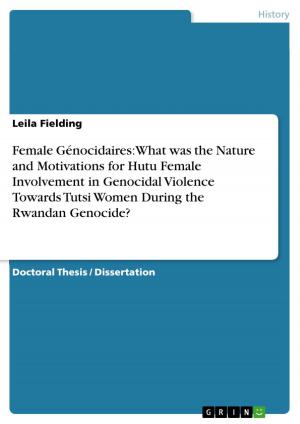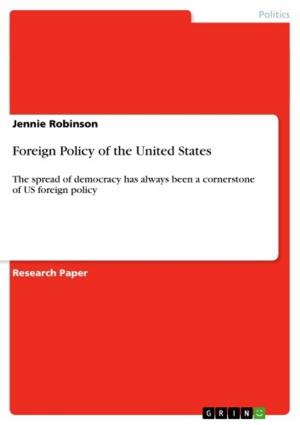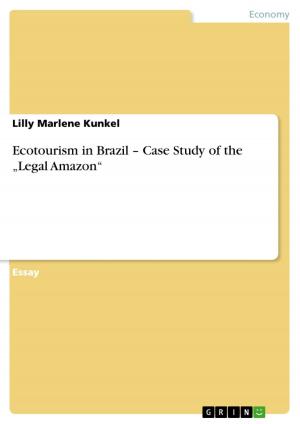Standardized testing - unmasking a threat to democracy
unmasking a threat to democracy
Nonfiction, Reference & Language, Education & Teaching, Administration| Author: | Michael Ernest Sweet | ISBN: | 9783638804264 |
| Publisher: | GRIN Publishing | Publication: | July 4, 2007 |
| Imprint: | GRIN Publishing | Language: | English |
| Author: | Michael Ernest Sweet |
| ISBN: | 9783638804264 |
| Publisher: | GRIN Publishing |
| Publication: | July 4, 2007 |
| Imprint: | GRIN Publishing |
| Language: | English |
Scientific Essay from the year 2006 in the subject Pedagogy - School System, Educational and School Politics, grade: A, Concordia University Montreal, 17 entries in the bibliography, language: English, abstract: The purpose of this paper is to deconstruct the debate surrounding educational reforms concerned with standardized testing. The theoretical framework I use to analyze this debate is based on theories of democracy and capitalism and unmask the real motives of the various stakeholders involved in the development and implementation of standards reform; that they are not concerned primarily with student learning. Additionally, I demonstrate that the deleterious effects of this shift in the assessment paradigm, and schooling in general are, unfortunately, of dyer consequence to our democratic state. The paper is a concise overview of standardized testing, its history and the dangers in its continued implementation.
Michael Ernest Sweet is an award-winning Canadian educator, writer, and photographer.
Scientific Essay from the year 2006 in the subject Pedagogy - School System, Educational and School Politics, grade: A, Concordia University Montreal, 17 entries in the bibliography, language: English, abstract: The purpose of this paper is to deconstruct the debate surrounding educational reforms concerned with standardized testing. The theoretical framework I use to analyze this debate is based on theories of democracy and capitalism and unmask the real motives of the various stakeholders involved in the development and implementation of standards reform; that they are not concerned primarily with student learning. Additionally, I demonstrate that the deleterious effects of this shift in the assessment paradigm, and schooling in general are, unfortunately, of dyer consequence to our democratic state. The paper is a concise overview of standardized testing, its history and the dangers in its continued implementation.
Michael Ernest Sweet is an award-winning Canadian educator, writer, and photographer.















